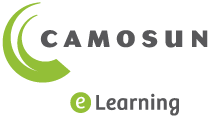Universal Design for Learning (UDL) is a research-based framework that guides the design of inclusive learning environments. Developed by CAST, UDL is grounded in the science of how people learn and aims to improve teaching and learning for all students—not just those with disabilities.
At its core, UDL is about removing barriers and providing flexible pathways so that every learner can engage meaningfully with course content. When applied thoughtfully, UDL can reduce the need for individual accommodations by proactively designing for learner variability from the start.
“The goal of UDL is learner agency that is purposeful and reflective, resourceful and authentic, strategic and action-oriented.” — CAST UDL Guidelines
Why UDL Matters in Higher Education
In post-secondary settings, UDL supports academic success by recognizing that students bring diverse backgrounds, strengths, and needs. It encourages instructors to design courses that:
- Offer multiple ways for students to engage with material and each other,
- Provide varied formats for presenting content, and
- Allow flexibility in how students demonstrate their learning.
This approach aligns with the belief that all students can work toward the same learning goals when given appropriate support and challenge.
It also resonates with the First Peoples Principles of Learning (FPPLs), which emphasize holistic, experiential, and identity-affirming approaches to education—centering relationships, reflection, and the well-being of both the learner and the learning community.
“The latest iteration of the UDL Guidelines responds to a strong call from the field—both practitioners and researchers alike—to address critical barriers rooted in biases and systems of exclusion for learners with and without disabilities.” — CAST UDL Guidelines
The Three Core Principles of UDL
UDL organizes its guidelines around three key principles, each addressing a different aspect of the learning process:
1. Engagement – The Why of Learning
Design for motivation and interest by offering choices, fostering collaboration, and supporting emotional well-being.
UDL recognizes that students bring a range of lived experiences—cultural backgrounds, personal challenges, and emotional states—that shape how they engage with learning. By intentionally welcoming students’ interests and identities into course design, educators can create more inclusive, motivating environments that support deeper connection and persistence.
This aligns with First Peoples Principles of Learning (FPPLs), which emphasize identity, relationships, and the well-being of the learner in connection with community, land, and spirit.
2. Representation – The What of Learning
Present content in multiple ways to support perception, language comprehension, and concept development.
Inclusive design recognizes that students process information differently based on factors like language background, cognitive diversity, and prior educational experiences. UDL encourages educators to offer varied formats—such as text, audio, visuals, and interactive media—to ensure that all learners can access and make meaning of course content.
This reflects FPPLs’ emphasis on multiple ways of knowing, learning through story and memory, and honoring diverse knowledge systems, including Indigenous knowledge.
3. Action & Expression – The How of Learning
Provide options for students to interact with materials and demonstrate what they know in different ways.
Students vary in how they plan, organize, and express their learning—especially those with executive functioning challenges, language processing differences, or anxiety around performance. UDL supports inclusive assessment by allowing multiple means of expression, such as written work, presentations, creative projects, or multimedia submissions.
These practices resonate with FPPLs’ focus on experiential learning, reflection, and the recognition of individual roles and responsibilities within a learning community.
References
- Learn more about the Universal Design for Learning framework from CAST.
- Learn more about First Peoples Principles of Learning (FPPLs) from First Nations Education Steering Committee.
- Explore some of the current and recent UDL Projects at the college
